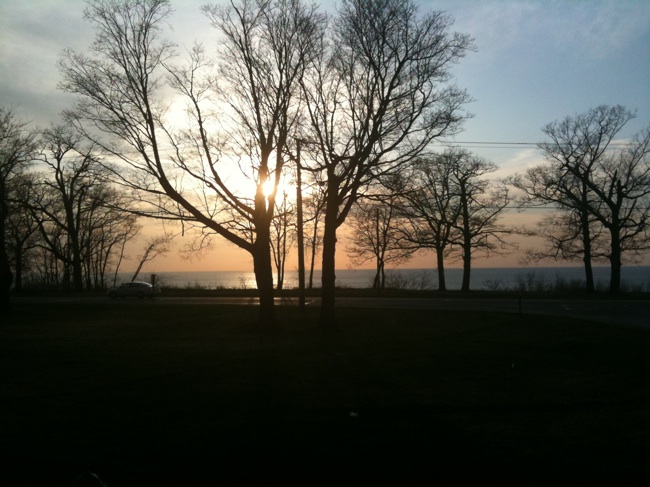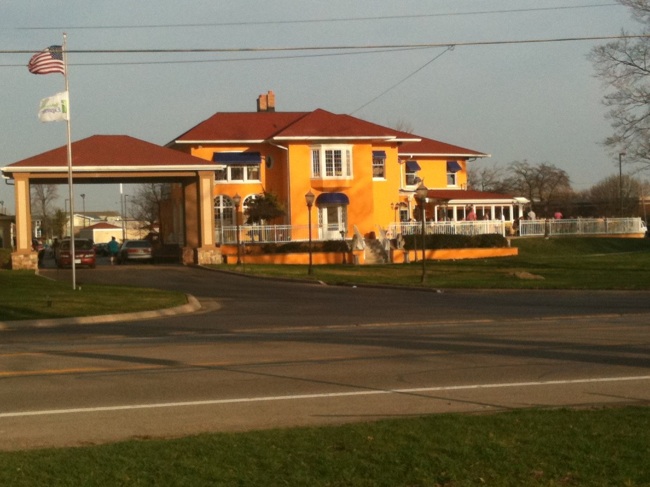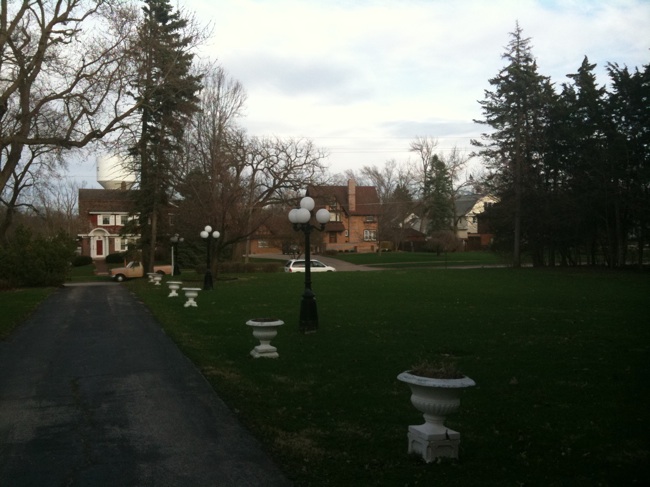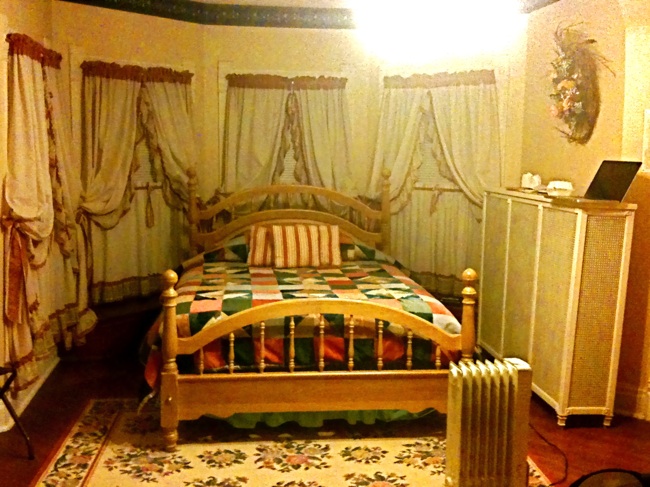
The original plan was to sell my car (’02 Honda Odyssey minivan) in Toronto, and to live car-free forever after. It turned out that there are so many cars on the market that what I was offered was less than the cost of my last repair. So I decided that, after helping my ex to pack up her belongings (and throw out the accumulated junk of thirty years of cohabitation), I would load up the few things from the old house in Caledon (Ontario) I wanted, and make one final road trip across the continent to my new home on Bowen Island (part of greater Vancouver BC) — 5100 km in seven days of driving. One more trip ‘for the road’ to see if I could learn something more about (North) America before permanently retiring my car (except for emergencies). Of course, I have kept a journal. Here is the first of two posts on my road trip.
So far (days 1-4) a few things have really stood out for me. The first, as the title of this post suggests, is the awful realization that this vast continent has been systematically pillaged, despoiled, used up, and ruined. North America is not an easy continent to tame. It’s rugged, sprawling, and compared to most continents inhospitable to humans. It’s intimidating in its sheer vastness and its ecological extremes — impassable mountains and forests, savage storms, staggering expanses of prairie, bleak steppe (some of it called ‘badlands’), swamp, brush, tundra and desert, extremes of temperature and humidity, insect hordes so thick and relentless they can drive you insane. It’s hard not to sympathize with the pioneers who did everything they could to conquer and subdue everything natural on this continent.
But they have now succeeded all too well, and the damage we have done is now accelerating and out of all control. There are substantially no wild places left in the inhabitable parts of the continent. We have clear-cut almost all of the forest that once covered much of the continent, and clear-cut the prairie and steppe as well, planting the former in monoculture grains and allowing grazing animals to consume the latter, so that now we have moved most of the grazing animals to feedlots, crowded together in vast concentration camps of misery, stench and horrific confinement, with nothing natural to eat and no place natural to spend even a tiny part of their ghastly lives. We stupid humans still don’t realize that animals are not ours, they are not meant to be confined, and they suffer terribly in our heartless corrals and cages. As I drove across this continent I could hear the constant and collective scream of the land and all the life that struggles to live upon it. We have desolated a continent that the pioneers thought could never be tamed, and now we are killing it with increasing energy and skill.
On the bookshelf of one of the B&Bs I stayed at on this trip was a 40-year-old book called America the Raped: The Engineering Mentality and the Desolation of a Continent. The author spoke about the need to change our mindset about our relationship with nature before we destroyed it all. Forty years later it is too late, and we’re still pumping out books with the same weary message. The place you love is gone. We cannot be other than who we are.

St Joseph Michigan — a packed Mexican restaurant
The second thing that has stood out for me is how well-intentioned, caring and hard-working almost all North Americans are. They are busy coping with the needs of the moment and trying to do their best for those they love, to be good citizens and providers and parents and workers. They have neither the time nor the information and education to know what is really going on in the world, so they believe what they’re told by those they trust, and they do their best. And they’re cheerful, and hopeful, to a degree that makes no sense. Ignorant, distracted, bewildered, still full of dreams and unintentionally playing perfectly their role in the brutal destruction of their land and our planet.
And the third thing that has stood out for me is the startling evidence of the disappearance of the middle class, and the unimaginable debt load of the ‘average’ North American (i.e. working/unemployed class North Americans, in contrast to those in the shrinking privileged class). I’ve tried to get everyone I meet to tell me their stories, and these stories just make me shake my head. I drove through two neighbouring communities on the Lake Michigan coast. The first, Benton Harbor, looked as if someone had set off a bomb in a struggling nation: whole blocks leveled or completely boarded up, and the only people I saw on the street were drunks and scavengers through the garbage, which was everywhere. A dock town, it is bankrupt, being run (according to the local radio station) by a receiver for the state and unable to pay back wages owed its civic employees. It is not the only, or largest, town in this predicament.
Yet right beside this town is the town of St Joseph, which is affluent, full of mansions and busy restaurants and resort hotels, with a downtown full of trendy shops and tourist attractions. The two towns sit in apposition, a statement of two economies, two societies, two worlds in one place, each apparently oblivious to the other and what it all means. I saw this juxtaposition everywhere — the larger cities in each state are clogged with construction projects financed with stimulus money, and (with a few exceptions, like Detroit) look to be thriving, while the small towns and countryside look mostly deserted, abandoned, lost, with excellent businesses dying for lack of customers, roads crumbling and streets empty.
I spoke to people who admitted that they had $40,000 in credit card debt, making minimum payments each month, and paying 28% interest on balances. I spoke to people who admitted they had $200,000 in medical debts that they never expected to be able to pay back. I spoke to people who said the only chance they had to ever pay off their mortgages would be if someone offered them twice their home’s current value. I spoke to people who have been running successful and respected small enterprises for thirty years, and are still in debt over their heads, and are now, suddenly, thanks to this endless economic crisis, teetering on the edge of bankruptcy. I looked at houses once valued at $200,000 now valued at $30,000. The only people I spoke to who had no debts were those who had no assets. But then I didn’t speak to anyone in the privileged class.
This is slavery, except that now the slaves either don’t know it or think it’s their own fault.

Beyond these three major observations, here’s what else I saw (or think I saw — it’s sometimes hard to say when you’re whizzing by so much so fast and when the stories you hear are anecdotal):
- Canada is living in a real estate bubble that cannot continue. The Canadian and US economies are joined at the hip, and it just doesn’t make sense that Canadian real estate prices haven’t fallen significantly, and are now (my guess) close to twice those of comparable houses in comparable places in the US.
- It took me 2.5 hours to cross the border. There were no Americans going home, just Canadians going south to shop now that our dollar has again reached parity with the US dollar. And while US services are cheaper than those in Canada, there’s no evidence that the stuff Canadians go to buy (mostly, apparently, electronic and textile products made in China) are any cheaper. Insanity. This is what ‘recreation’ has come to.
- While I’ll admit it’s not tourist season, there was almost no out-of-state traffic on any of the interstate highways, except for long-haul trucks. When I was younger we used to play a game of crossing off each state and province on a map when we saw a licence plate from that place. This game has become much, much harder. Most of the traffic on the roads, outside of the cities (where the interstates are actively used by cars presumably going to the big box malls), was semis.
- I was intrigued at the psychology of speed limits. In areas where the limit was 55mph, traffic drove mostly at 65mph (trucks 60mph). Where the limit was 65mph, traffic drove mostly at 70mph (trucks 65mph). Where the limit was 75mph, traffic drove mostly at 75mph (trucks 70mph), and there were almost no speeders.
- I expected to see a lot of anger and hear news of violence and acts of meanness born of frustration at the poor state of the economy, the waste and theft of the bankers and corporatists, and the disconnection between politicians and people. I didn’t see it. I’m sure cynical politicians and corporate exploiters are able to effectively stir it up for the mainstream media when it serves their purposes by playing on public ignorance, but for the most part people don’t seem very cynical, or depressed, or angry. I think they’re a bit frightened and overwhelmed, but they’re still hopeful. The meanest things I saw were the road signs telling you what the fine and jail terms were for hitting a road worker with your car. Even the strange billboards for ‘entertainment centers’ where you could try shooting a ‘real machine gun’ didn’t seem designed to play off anger, but rather childish curiosity.
- It’s hard not to get overwhelmed and intimidated by the sheer scale of the landscape of North America. Everything is too big, too wide, too far apart. When you’re driving, even on the interstates, the hazards seem so large that you want to ask everyone for reassurance that it’s safe. Blizzards, huge tumbleweeds, dust storms, black ice, sleet, whiteouts, rain and fog that comes from nowhere and reduces visibility to zero, rockslides, gale force winds and tornadoes, wild animals darting across the road. The mountains seem so high and daunting that you can’t imagine you’ll ever be able to cross them. The prairie and brush areas go on for so long you forget what state you’re in. The whole landscape seems, well, cruel.

I’m also learning to ask the locals questions — what are the best B&Bs, restaurants, routes. We settle for consistency in chain restaurants and hotels when we travel, when we could get much more — better value, and wonderful stories — by trusting people in each community to tell us what their best places are.
More in Part Two, probably in a week or so once I’ve had the chance to digest my thoughts.





Hey Dave — Met you at Jerry’s retreat. Thanks for the post.. I think it’s important to get accounts of real interactions with people in the middle of the country… we live in our bubbles on the East and West Coasts and forget about everyone else. I grew up in Michigan (near Detroit) and I’m familiar with the communities you mentioned… Michigan is one of the states hardest hit by the depression. I’ve driven from Detroit to San Francisco and back again, and similarly reflected on landscapes and society.
You’re right… Americans are delusional slaves for the most part, and the middle class is evaporating. Have the elite abandoned us? Long ago, perhaps?
I like your ambitious goals… onward.
p.s. install the SI-CAPTCHA utility to get rid of the spam comments!
I see travel writer as a new potential by-line for you!
Fascinating read. I really noticed your writing eloquence when reading this piece. You really paint a picture with insight and finesse. Unfortunately it is a rather gloomy portrait, but art is truth. We all persist in being hopeful until we become determined. Then we act.
Thought provoking as always – will look forward to the next episode…
It does interest me that people seem to you to still be optimistic. If only it was directed away from simply ploughing away in the same old rut, but the rut is very deep now by the sounds of things.
Brilliant post, thanks for sharing.
Deeply interesting read for an outsider.
I’ve heard it said that there’s a Long Emergency underway .. or that we are all, collectively and individually, approaching a Fourth Turning. What that means for moving around and existing effectively in such a magnificent, wild but raped and hostile geography is probably anyone’s guess at this stage.